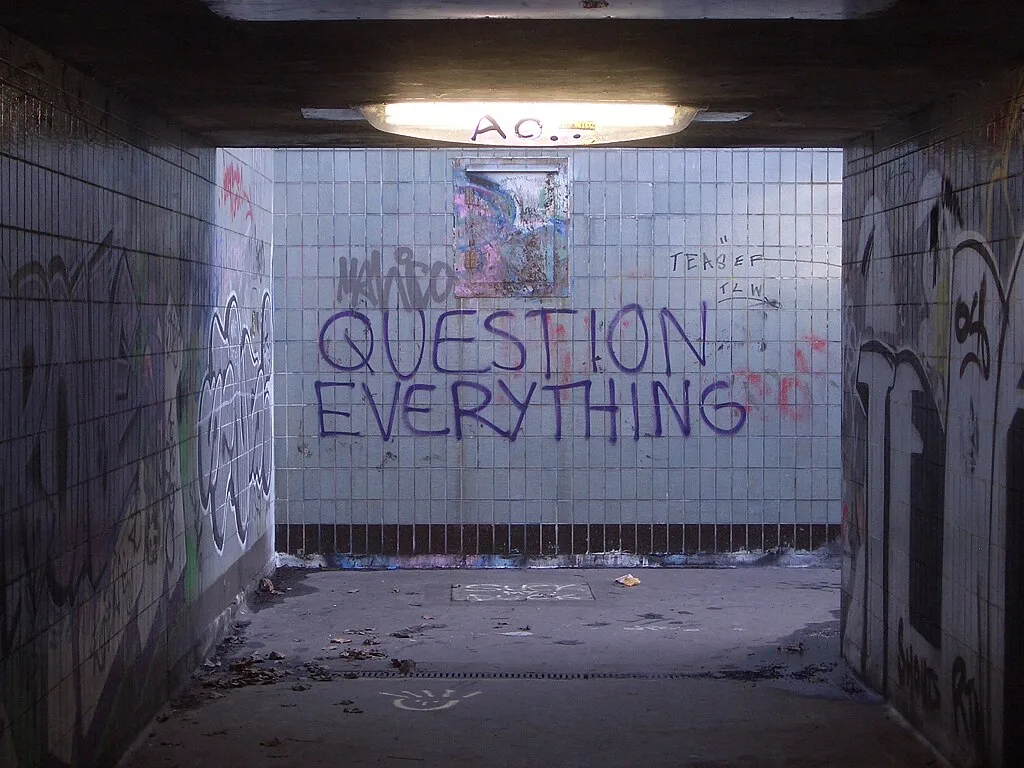Socrates’ Secret Weapon: Questioning Everything to Find Your Truth
June 12, 2024
For young people today, grappling with student debt and an uncertain job market can feel like navigating a labyrinth with a blindfold. Socratic philosophy, emphasising contentment and virtue, offers a beacon of clarity.

Socrates, the ancient Greek philosopher, had a rather unique approach to understanding life: he questioned everything. This relentless curiosity not only challenged the norms of his time but also laid the groundwork for critical thinking and self-examination, principles that remain as relevant today as ever (especially when you’re wondering why you paid £4 for a small coffee…)
Navigating the Challenges of Youth
For young people today, grappling with student debt and an uncertain job market can feel like navigating a labyrinth with a blindfold. Socratic philosophy, emphasising contentment and virtue, offers a beacon of clarity. Socrates himself advocated for a life of simplicity and introspection, suggesting that true wealth comes from living a virtuous and meaningful life rather than accumulating material possessions. The sentiment “the greatest wealth is to live content with little,” though often incorrectly attributed to him, does align with his teachings on simplicity and inner fulfilment. By questioning societal norms that equate success with material wealth, young adults can reframe their perspectives and find fulfilment in more meaningful pursuits. Could the secret to happiness be ditching our obsession with money?
In the job market, Socratic questioning becomes a tool for personal growth. By asking difficult questions about our ambitions and values, we can confront existential anxieties and carve out a path that is truly our own. If Socrates’ musings encourage you to explore more existentialist ideas, consider those of Sartre and Camus, who emphasise that we must create our own meaning in life.
The Creative Process
In the arts, Socrates’ approach is a reminder of the human essence in creativity, especially in an age where AI-generated art is becoming more common. He famously stated, “I know that I am intelligent because I know that I know nothing,” which is both humbling and a cheeky way of saying, “We’re all winging it.” This humility encourages artists to embrace their own creative uncertainties and delve deeply into the process of creation, producing work that is authentic and uniquely human. And let’s face it, no AI can truly capture the chaos of the human mind.
Socrates’ method of questioning also serves as a powerful antidote to the stifling effects of “cancel culture.” By fostering a mindset of continuous inquiry and dialogue, artists can challenge prevailing norms and express themselves freely, fostering innovation and genuine artistic expression. So next time someone tries to shut you down, channel your inner Socrates and keep asking the awkward questions!
Spiritual Inquiry in a Modern Context
For spiritual seekers, Socrates’ philosophy offers a path of deep self-examination and personal discovery. His declaration, “The unexamined life is not worth living,” encourages individuals to question their beliefs and seek truth beyond traditional religious frameworks. This approach aligns with modern spiritual journeys that emphasise personal enlightenment and the search for a deeper meaning in life. Finding your path might be less about chanting and more about questioning why you’re chanting in the first place.
Socratic Legacy and Modern Thought
Socrates’ legacy teaches us the enduring value of questioning as a means to uncover deeper truths. The Socratic Method remains a cornerstone in educational and philosophical circles for promoting critical thought and meaningful dialogue. In an era rife with misinformation, Socratic questioning provides a crucial tool for navigating the complexities of modern life and discerning truth from falsehood. To understand more about the importance of Socratic questioning today, take a moment to reflect on the impact it could have on the myriad of conflicts happening around the world currently. The Socratic Method could help people to identify falsehoods, reject fake news and avoid terrible decisions. Remember, the truth might be out there, but it’s up to you to keep asking the right questions.